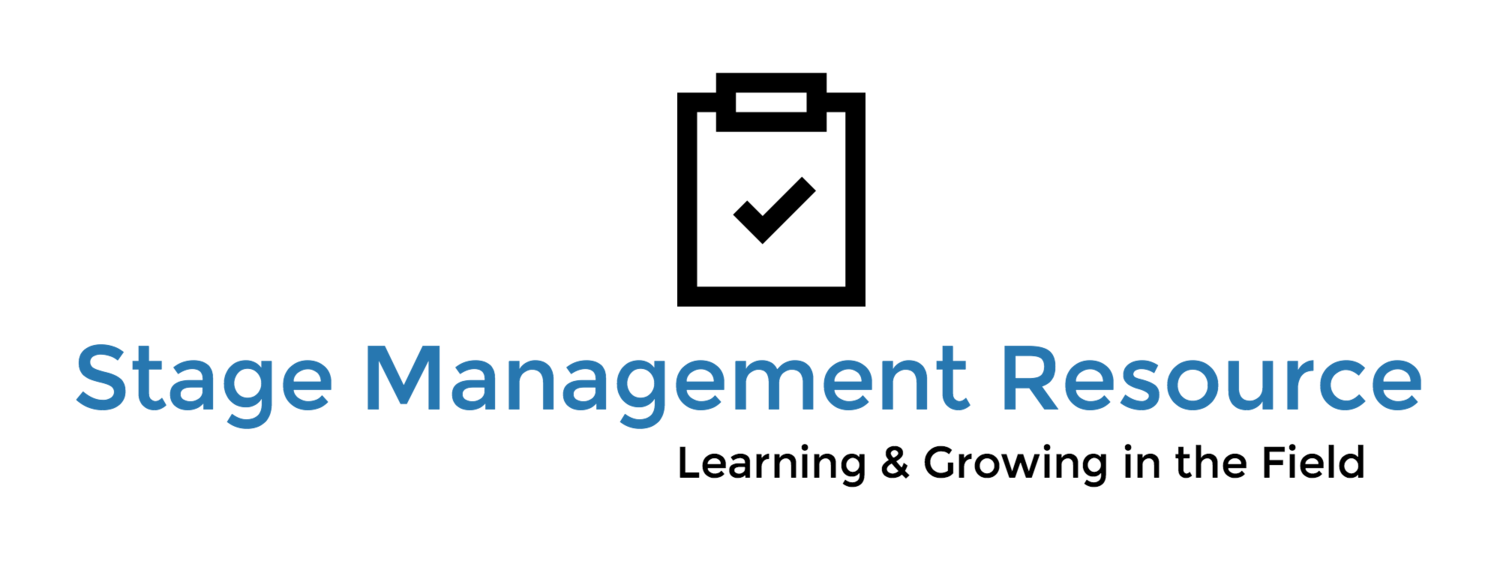Getting Started
Work on Productions
The BEST way to become a better stage manager is to stage manage as much as possible. It is extremely beneficial to work on multiple types of shows (plays, musicals, immersive projects, special events) to foster a wide skill set and to discover your preferences. Some great places to begin stage managing and increase your experience are high schools, colleges, and community theaters.
Building Your Resume
On your stage management resume, list your stage management experience and theatrical education. It is generally not necessary to list any theatrical experience in directing or acting, unless it contributes to your personal style of stage management. Many employers hiring stage managers value the non-theatrical jobs, involving leadership, that a stage manager has experienced. If you have worked somewhere that has helped you grow as a stage manager, feel free to list that on your resume.
Include:
Stage Management Work Experience
Production
Job Position
Theatre Company / Organization
(optional) Your Role
(optional) Dates Worked
(optional) Director and/or PSM
Other Event and/or Management Experience
Relevant Skills
Speaking Multiple Languages
Playing an Instrument
Sewing
Construction
Crafting
Technology Skills (Graphic Design, Advanced Programs, etc.)
Education / Training / Certifications
References
Increase Theatrical Fluency
It is incredibly important to have a strong knowledge base about the theatrical industry, both in your region and in the major theatre hubs of New York and London. One should be well-versed in both the history of theatre (and of musical theatre), current running productions, up-and-coming productions, and theatrical innovations. Begin by reading the theatrical news websites (see a list here). The more you know, the more valuable you are as a member of the worldwide theatrical community.
There's also a wonderful book about the 1967-68 Broadway Theatrical Season written by William Goldman, The Season, that does an excellent job explaining some of the more interesting and individual elements of Broadway.
One should also be well-versed in particularly famous plays and musicals, as understanding important theatrical work informs much modern theatre. In order to participate in conversation and understand common references, one should know the plays most highly regard in the theatrical lexicon. When working in theatre, you are expected to know works by William Shakespeare, at the very least.
200 Plays that Every Theatre Major Should Read - A comprehensive list of important plays from 472BC to the late 1990s
Goodread's Top 100 Stage Plays - A sampling of popular plays ranging from the Greeks to Now
25 Most Important Plays for Every Actor to Read - A list of deep, heady plays
Broadway Musicals: 100 Must See-Shows - A list of the most popular Broadway musicals
Here's some good news - you don't ALWAYS have to read these works to become familiar with them. Check streaming websites to see options for watching productions (Netflix often has high end productions, whereas many amateur shows are uploaded to YouTube). You can also see video of Broadway productions on BroadwayHD (for a fee) and at the New York Public Library Theatre on Film and Tape Archive.
Increase Technical Theatre Fluency
Learn the Basics of Stage Lighting
Learn How to Run a Light Board
Learn About Sound Design
Learn About Scenic Design
Learn About Costume Design
Technical Theatre for Non-Technical People by Drew Campbell
The Backstage Handbook by Paul Carter
Improve Your SM Skill Set
Learn How To:
Give Each Character an Initial to Identify Them
Obtain Your Ground Plan
Simplify Your Ground Plan for Blocking Pages
Practice! Try Taking Blocking Notes on TV shows.
Check Out "How to Become a Good Stage Manager"
Topics to Study:
Leadership (Group Dynamics)
Business (Success, Self-Marketing)
Psychology (Communication & Personality)
Sociology (Organizations & Behavior)
Reading List:
Still Surprised by Warren Bennis
Good to Great by Jim Collins
The Advantage by Patrick Lencioni
The Five Dysfunctions of a Team by Patrick Lencioni
Daring Greatly by Brené Brown



